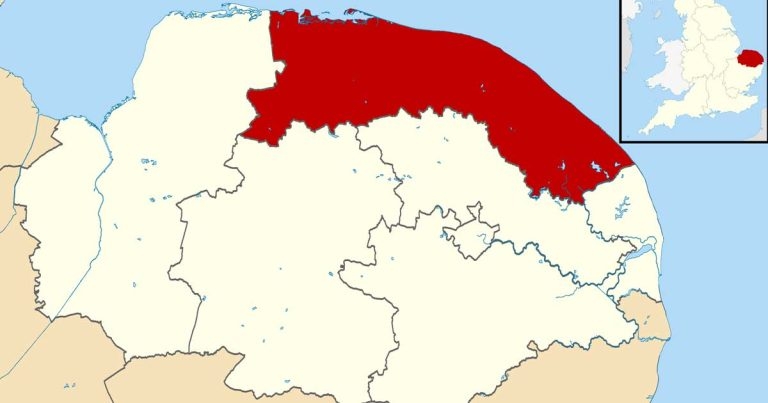27 Aug 2024
Officials have set up a 20km control zone around the affected farm in south Norfolk and warned there is a “high risk” of onward spread.

Image © Norfolk_UK_district_map_(blank).svg: Nilfanion, created using Ordnance Survey data derivative work: Renly, CC BY-SA 3.0, via Wikimedia Commons
A new case of bluetongue has been confirmed in Norfolk – the first to be detected anywhere in England since March.
A 20km temporary control zone has been set up around the farm near Haddiscoe where details of the infected sheep were confirmed yesterday (26 August).
But officials have warned there is a “high risk” of onward spread, due to current temperature and midge activity levels, as they repeated their pleas for vigilance from vets and farmers.
UK deputy CVO Ele Brown said: “This is the first animal in England that has shown clinical signs and been unwell from infection with bluetongue.
“This detection is a clear reminder of the threat of the disease: farmers and their vets must remain vigilant and report any suspicions to the APHA.”
The discovery follows repeated warnings in recent weeks for vets and farmers to remain watchful for signs of the BTV-3 virus strain, amid its continuing spread in mainland Europe.
Thousands of cases have been recorded across the Netherlands, Belgium and Germany since the spring, while France, Luxembourg and Denmark have also seen confirmed infections.
Officials said surveillance work is underway to determine whether the virus is currently circulating in the UK.
However, a statement announcing the new case added: “Given the current temperatures and midge activity, which spread the disease, there is a high risk of onward spread in the UK.”
Free testing remains available for animals that are being moved from the highest-risk counties – Norfolk, Suffolk, Essex, Kent and East Sussex – to other parts of Great Britain or which are due to be sold at a market within those where external buyers are present.